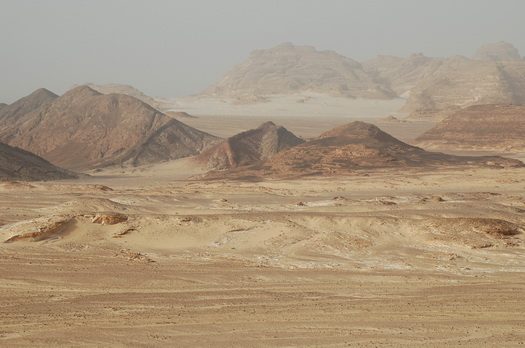
Weekly Dvar Torah: From Sinai’s Fire to Everyday Light
We began the week with a blast of lightning and thunder, a mountain on fire, and the very voice of G-d proclaiming the Ten Commandments. Shavuos was magnificent—decorations in shul, delicious cheesecake and blintzes, children gathered for the reading, and hearts lifted in joy. But beneath the pageantry lies something far more enduring: the giving of Torah wasn’t just a spectacular event; it was a mission statement. It taught us that G-d does not reside only in the heavens but seeks a dwelling below, in our physical world, in our ordinary lives.
So why did such a lofty moment come with seemingly mundane commandments like honoring parents or not stealing? Why not fill this divine encounter with ethereal wisdom and lofty spirituality? Because the revolution of Sinai was not just in what was said—but in how and to whom it was said. G-d spoke not to angels but to humans, recently freed slaves with the capacity for sin, the need for guidance, and the power to transform. And He didn’t ask for spiritual meditation alone—He demanded action: “Naaseh v’Nishma—we will do, and then we will understand.”
This sets the tone for everything that follows. It explains why the Torah must be studied with our lips, not just our minds, and Mitzvos must be performed with our hands, not just our hearts. Because G-d chose the physical world as His sanctuary, and it is in transforming the mundane that we fulfill our highest calling.
And so, the week continues. From the heights of Sinai, we are not meant to remain still. The name of this week’s Parsha, Nasso, meaning “elevate,” reminds us that even the head—the loftiest part of the body—must continue to grow. Shavuos was not a peak, but a launchpad. Now the work begins: bringing the divine into every corner of our lives.
This is beautifully symbolized in the service of the Mishkan, the traveling sanctuary in the desert, carried by the tribe of Levi. Gershon, whose name evokes “divorce,” removed negativity, while Kehos, from the root “connection,” brought holiness in. Today, prayer replaces this service—clearing away spiritual blocks, reconnecting us to our source. Every Jew, the Rambam teaches, can take on the role of Levi through sincere prayer and devotion.
And then comes Birchas Kohanim, the priestly blessing. If prayer clears the channels for what we’ve earned, the priestly blessing opens entirely new ones—for gifts we didn’t earn, but G-d chooses to bestow through His infinite kindness. The Kohen, rooted in chesed, channels blessings like a divine lottery—undeserved, but deeply cherished.
Here, the angels raise a challenge. “You are the G-d who shows no favoritism—how can You now shine Your face and show grace?” And G-d responds, “My children bless Me even for a crumb of bread. They transform war into peace.” The Hebrew word for bread, Lechem, shares a root with Milchama, war. Eating is a battleground between the body’s desires and the soul’s purpose. But when we say Grace after meals, when we elevate the act of eating to a moment of divine service, we reconcile opposites—body and soul, matter and spirit, conflict and harmony. That is peace.
Indeed, true peace is not sameness—it is unity between opposites. That’s why the priestly blessing ends with shalom. When we live with purpose, even our physical actions become instruments of harmony. And when we bless each other—as the Rebbe so often encouraged—we open more channels for that harmony to flow.
The Parsha also speaks of the Nazir, one who sanctifies themselves by abstaining from wine and growing their hair—an image of spiritual yearning. Tradition teaches that if someone vows to become a Nazir “on the day Moshiach comes,” the vow is binding every day—because each day is a potential day of redemption. We are called to live as if today holds that promise.
And we see that promise in action. In this very week, we celebrate a moment of personal redemption and spiritual victory. Our granddaughter Chana, daughter of Chaya Mushka and Yankel Raskin—Shluchim to Ellenville, New York—has completed all 24 books of Tanach by her Bas Mitzvah. This is not just a scholarly feat; it’s a reflection of everything Torah stands for. A young girl, primarily homeschooled, reaches a mountain of her own—and from there she will only rise higher.
Chana, you make Bubby and Zeidy proud. You are living proof that Sinai was not a one-time event—it echoes through each generation, through every child who chooses Torah, every Jew who says Amen, every moment when heaven touches earth.
So let us take all of this—the power of action, the beauty of elevation, the promise of peace—and carry it into the week ahead. As a Kohen, I bless you all:
יְבָרֶכְךָ ה׳ וְיִשְׁמְרֶךָ.
יָאֵר ה׳ פָּנָיו אֵלֶיךָ וִיחֻנֶּךָּ.
יִשָּׂא ה׳ פָּנָיו אֵלֶיךָ וְיָשֵׂם לְךָ שָׁלוֹם.
“May G-d bless you and guard you.
May G-d shine His countenance upon you and be gracious to you.
May G-d turn His countenance toward you and grant you peace.”
Amen. And may we merit to see the complete and final redemption—speedily, in our days.
Have a Peaceful Shabbos full of Grace,
Gut Shabbos,
Rabbi Yosef Katzman










